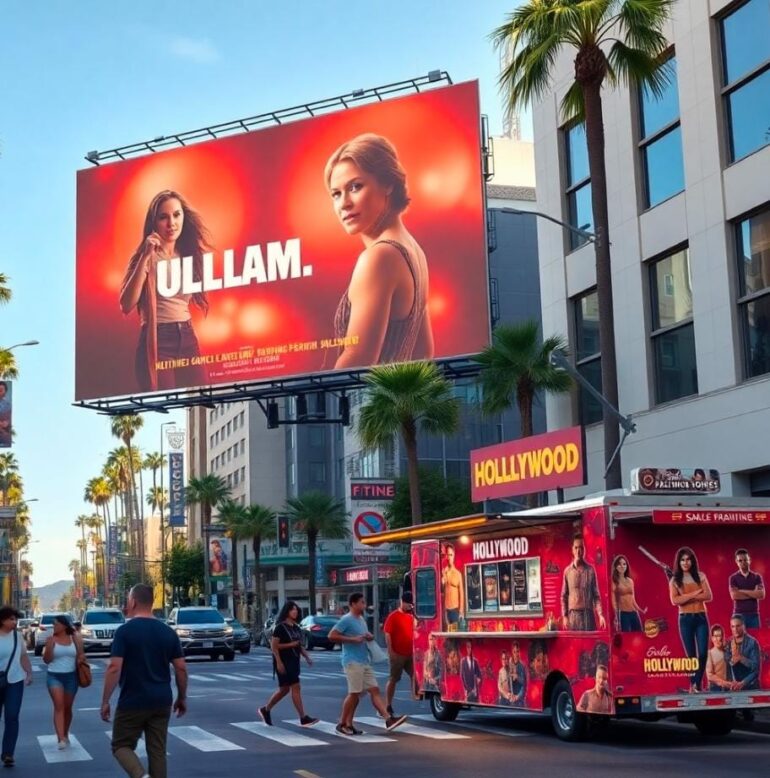In today’s competitive entertainment industry, grabbing the audience’s attention goes far beyond traditional posters, trailers, or digital ads. Audiences are constantly exposed to a flood of content, making it difficult for studios and production houses to break through the noise. This is where experiential marketing comes in, transforming movie promotions into immersive experiences that spark conversation, inspire social sharing, and create genuine emotional connections. By blending creativity with strategy, experiential campaigns have become one of the most effective ways to market films in the United States.
Why Experiential Marketing Works for Movies
Movies are all about emotions, stories, and experiences, and audiences want to feel part of something bigger than simply watching a trailer online. Experiential marketing taps into this desire by creating real-life moments where fans can engage with the movie before it even hits theaters. Whether it’s stepping inside a recreated film set, interacting with characters in person, or receiving a personalized branded experience, these activations leave a lasting impression.
An experiential marketing agency plays a crucial role in designing these campaigns. With expertise in blending storytelling and event production, agencies help filmmakers build hype around a release while ensuring the experience aligns with the film’s theme. Unlike traditional ads, experiential campaigns encourage word-of-mouth buzz, amplify reach through user-generated content, and establish a deeper emotional connection with fans.
An Experiential Marketing Campaign focuses on creating memorable, real-world interactions for consumers to directly engage with a brand, moving beyond traditional advertisements. By immersing the audience in a unique experience, these campaigns build a deeper emotional connection, fostering brand loyalty and encouraging authentic word-of-mouth promotion.
Iconic Examples of Experiential Campaigns
Hollywood has repeatedly shown how creative movie activations can generate massive publicity. For example, when the “It” remake was released, a real-life haunted house experience was created in Los Angeles, inviting fans to face their fears while walking through carefully crafted sets inspired by the film. Similarly, superhero films have hosted live stunt shows, comic-con booths, and interactive fan zones that immerse people directly into the movie universe.
These strategies do more than entertain; they extend the movie’s storytelling beyond the screen. When fans are able to physically step into a film’s atmosphere, it increases their likelihood of purchasing tickets, recommending the film, and posting about the experience on platforms like Instagram, TikTok, or YouTube.
The Role of Food in Movie Marketing
One of the most innovative approaches to experiential campaigns is through food and beverage activations. Movies have always had a cultural tie to food—from popcorn at theaters to themed snacks at premieres. Today, studios are taking it further with creative tactics such as food truck marketing. A branded food truck roaming city streets can serve dishes inspired by the movie’s setting, characters, or storyline.
Imagine a New York launch for a romantic comedy where fans can order signature cupcakes designed around the film’s theme, or a horror movie promotion offering blood-red slushies from a chillingly designed truck. Beyond the novelty, these experiences create Instagram-worthy moments and provide tangible memories associated with the film. When executed by an experiential marketing agency, food trucks become mobile billboards that also deliver authentic engagement.
Publicity Beyond Traditional Media
The ultimate goal of any movie marketing campaign is to generate buzz before opening weekend. Experiential activations achieve this by bridging offline experiences with online amplification. When a campaign is creative enough, it earns organic media coverage from entertainment journalists, bloggers, and influencers. More importantly, audiences themselves become ambassadors, sharing their experiences across social media platforms.
Food truck marketing is particularly effective here, as it combines physical presence with digital storytelling. Fans not only taste something new but also share it online, extending the campaign’s life span. This type of integration ensures the movie reaches both local communities on the ground and global audiences online.
Experiential Marketing in the U.S. Entertainment Landscape
The U.S. has always been a trendsetter in film promotion, and experiential campaigns continue to evolve with technology and creativity. Virtual reality experiences, augmented reality filters, pop-up installations, and interactive games are now being used alongside more traditional experiential tactics. Whether it’s a sci-fi blockbuster or an indie drama, experiential strategies can be tailored to fit the budget and message of the film.
The expertise of an experiential marketing agency ensures these campaigns go beyond gimmicks and deliver measurable results. Agencies track foot traffic, social media mentions, and overall engagement to help filmmakers understand the return on their investment. This makes experiential campaigns not just creative, but also strategic and data-driven.
Building Community and Loyalty
One of the most powerful outcomes of experiential campaigns is their ability to build a community around a movie. When fans feel they’ve been part of a film’s journey from the beginning, they are more likely to remain loyal supporters even after the theatrical release. Studios can extend these experiences into streaming launches, DVD promotions, or sequel announcements, creating a long-term cycle of engagement.
For example, a campaign featuring food truck marketing before a movie’s release could evolve into themed food experiences tied to the sequel, keeping fans engaged over years rather than weeks. By weaving food, culture, and storytelling into one immersive package, films can maintain relevance in a crowded market.
Conclusion
Experiential marketing has become one of the most powerful tools in the movie publicity toolkit. By working with an experiential marketing company, filmmakers and studios can turn passive audiences into active participants, creating moments that are remembered long after the credits roll. Whether it’s through immersive installations, live events, or innovative tactics like food truck marketing, these campaigns tap into fans’ emotions and bring the magic of movies to life before they even step into the theater.
In a world where attention spans are short and content is endless, experiential strategies give movies the edge they need to stand out. For audiences in the United States, these experiences don’t just promote films—they make them unforgettable.






